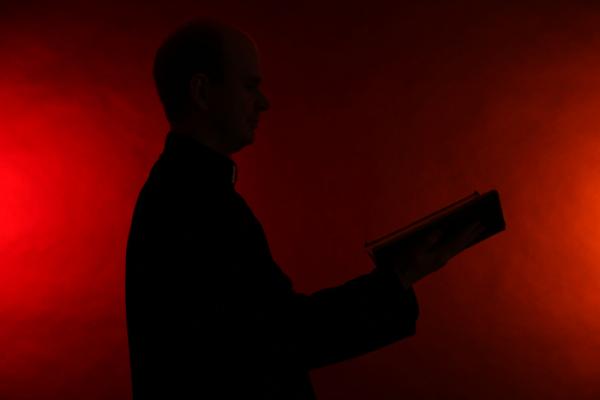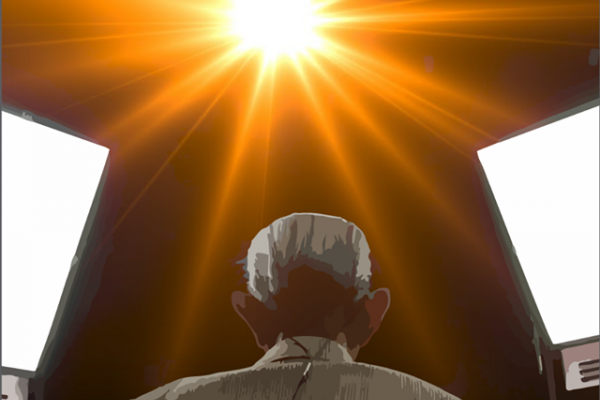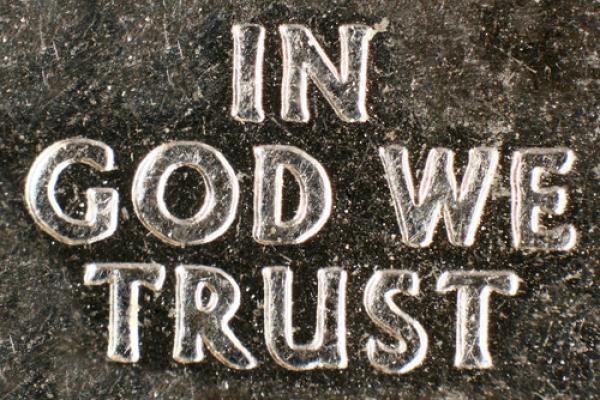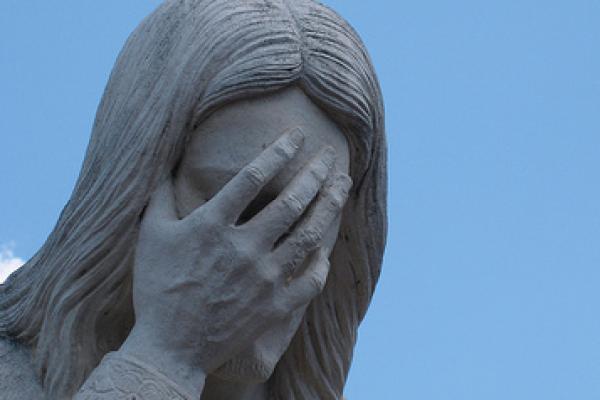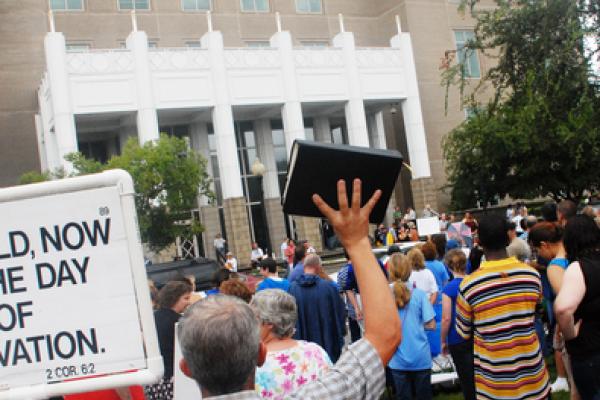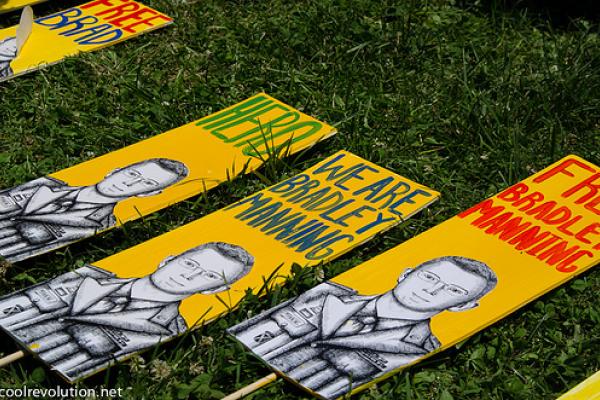Editor’s Note: As we continue reporting on the important topic of sexual abuse and violence, Sojourners has opened up the Sexual Violence and the Church blog series for submissions. This piece is one such submission. If you are interested in submitting a post for the series, please email the Web Editor HERE.
"From the beginning …" began my pastor, rising slowly from his armchair. With his next words, he broke my world apart. From the beginning, he had been attracted to me as a woman. From the beginning, his interest in me had been personal. He told me the reasons why, and then he said these words: "If we were both single, and if I weren't your pastor, we'd be going out to dinner." He paused a long beat. “And we’d see where it went from there."
Were my pastor's words an act of sexual violence?
When we hear the words "sexual violence," we may envision a forcible rape or a sexual act with a person incapable of consent. Many of us would consider unwanted groping or uninvited embraces to be acts of sexual violence. Some of us would include "consensual" sex between persons of different rank, because we understand that power disparity makes meaningful consent impossible. But what about the manipulative behavior that gives rise to the delusion of consent? Was my pastor's not-quite-a-proposition an act of sexual violence? Could a lingering handshake, a compliment on spiritual gifts, or an offer of pastoral support be acts of sexual violence? Most of us would say no. And most of us would be missing the boat.
For thousands of years, select groups of Christians have thought their generation was Earth’s last. Even the Apostle Paul thought Jesus would return in his lifetime. But Paul didn’t have the audacity to pinpoint an exact date for what we call the Rapture. Harold Camping, on the other hand, did.
Apocalypse Later: Harold Camping vs. The End of the World a new documentary that premiered June 8 — exposes wrongful and conflicting beliefs about Jesus’ return by sharing Camping’s concrete opinions of those who didn’t follow his beliefs of the apocalypse. Declaring their spot in hell, Camping was certain that those who didn’t follow his apocalyptic views would spend eternity in damnation.
Apocalypse Later tells the story of Camping, a man who had to let go of his pride and face the reality of joining the dozens of others who have wrongly predicted the end of time.
In the documentary, historian and New Testament scholar Loren Stuckenbruck refers to the apocalypse as a “literary genre,” a “mode of thought,” and “a social movement.”
The film is emotional and shocking, contrasting the scary, more literal interpretations of fundamentalist Christians with the more nuanced hermeneutical approaches of academics like Struckenbruck. The juxtaposition reveals that the tensions and battles that Christians face might not be against those who will be “left behind,” but rather between Christians themselves.
If asked, “what is the most challenging Sunday to preach a sermon?” I suspect few pastors would say July 4th weekend. But as leaders providing spiritual guidance in a country that is often associated with strong nationalistic tendencies, offering a word that speaks to the messy relationship between “God and Country” is a task that American pastors cannot take lightly.
This dilemma of competing loyalties is not new. In both Matthew and Mark, Jesus is approached by opponents who sought to trap him by asking whether they were obligated to pay Roman taxes (Matthew 22:15-22; Mark 12:13-17). An affirmative response would have been a betrayal of faith but a negative answer would be perceived as an act of sedition. Faced with this paradox, Jesus wowed his inquisitors by telling them to give Caesar what was due to Caesar and God what was due to God. Yet, as Franklin Gamwell, notes in Politics as a Christian Vocation, this only raises the question of what belongs to each of the competing authorities. If Christians are called to love God with all our being, then how can anything not belong to God? How can any other authority make a claim of allegiance on our lives?
At first I had no problem with domestic drones joining the plethora of surveillance cameras to “keep us safe.”
Big Brother — keeping his eye on me from above in stores, in traffic and everywhere else — would find my personal reality show boring. As a pastor, I’m used to living in a fishbowl. Besides, as John Calvin said, if you fear the eye of a human more than the eye of God, you have spiritual issues to address.
But then, there may be another problem with increased surveillance and flooding our nation’s skies with drones. Let’s take traffic cameras as an example.
In response to my last article, “ 10 Things You Can't Do While Following Jesus,” I was accused multiple times of being political. All I was trying to do was follow Jesus. So, I thought it'd be interesting (and generate tons more hate mail) to show what a list would actually look like if I were being political intentionally. Like the first list, this is not a complete list, but it's a pretty good place to start.
There will be those who comment and send me messages berating me for “making Jesus political.” It's OK. Fire away. Jesus didn't worry much about stepping on political toes, and the Bible insists that governments be just toward the least of these (the books of the prophets alone make this point very clear). Frequently, people who are the most vocal about not making Jesus political are the same people who want prayer in school and laws based on their own religious perspectives. By a happy little circumstance that brings us to my list:
The Puritans sailed to these shores 400 years ago seeking freedom of religion, but freedom of their religion only. Earlier this year, a group of North Carolina lawmakers, apparently channeling the Puritans, tried to establish Christianity as the state religion.
Their action was prompted by a complaint filed by the American Civil Liberties Union. The ACLU noted that some county commissions and other governmental boards around the state opened meetings with prayer. While these various boards had policies that allowed for a multiplicity of religious voices, most prayers were offered in the name of Jesus Christ.
Eleven legislators, all white male Christians, backed a bill to codify Christianity in state law, saying the First Amendment to the U.S. Constitution does not trump the state’s rights. The effort died a quick and merciful death.
These misguided politicians forgot a simple truth – even if a state could mandate a public religion, that wouldn’t change what is in people’s hearts. As Roger Williams wrote in June 1670, “Forced worship stinks in God’s nostrils.” Williams, who was expelled by the Puritans and founded a religious colony in Rhode Island, knew firsthand the importance of religious freedom.
According to Gil Bailie’s groundbreaking book Violence Unveiled, the word myth stems from the Greek wordmu. Those two Greek letters combine to form the powerful concept behind all myths. Mu means “to close” or “to keep secret.” Bailie claims that “Myth closes its eyes to certain events and closes its mouth.” Myths are the lies and the cover-ups that we tell about our own violence. Truth, on the other hand, works against myth to reveal our violence.
Ancient cultures told their myths, of course. Unfortunately, we moderns, who think we’ve progressed so much since our ancestors, tell our own myths. The United States government’s military trial of Pfc. Bradley Manning is a case in point.
Manning’s Leak to WikiLeaks
In 2010, Manning was arrested and accused of the worst military crimes, including espionage and aiding the enemy. He secretly released an extensive archive of classified documents to WikiLeaks. Some believe Manning is a traitor, while others believe he is a heroic whistleblower. As the New York Times reports, “There is no doubt that he did most of what he is accused of doing, and the crucial issue is how those actions should be understood.”
